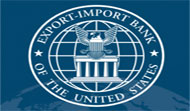
Access to capital is the lifeblood of a small business if it wants to grow and hire. Yet, increasingly the U.S. government puts roadblocks in front of entrepreneurs who, with a little financial help today, could be tomorrow’s Apple.
For example, let’s take Dodd-Frank, which is forcing our community banks out of business. For more than a hundred years, community banks have been the economic drivers for small business, communities and the nation.
But they have been replaced by megabanks that are getting bigger, fueled by the flawed perception that they are “too big to fail.” Our community banks have just 12 percent of all banking assets, compared with megabanks’ 70 percent. The real tragedy is when community banks fail, local businesses no longer have access to local borrowing.
Regulations like Dodd-Frank contributed to this failure. But we have moved into a government that thrives on regulation. Regulations today cost our economy $1.2 trillion a year. When regulations hold back innovation, small business cannot grow.
Now the Export-Import (Ex-Im) Bank of the United States is caught in the web of political infighting.
As I outlined in my book, Conscientious Equity, Ex-Im provides export finance programs to American exporters in an effort to help make them more competitive overseas. These programs include working capital loans, loan repayment guarantees, loans to foreign purchasers of U.S. goods and services and credit insurance.
Ex-Im explains their missions as: “Focusing on exports to developing countries, aggressively countering trade subsidies of other governments, stimulating small business transactions, promoting the export of environmentally beneficial goods and services and expanding project finance capabilities.”
Ex-Im has served this nation’s entrepreneurs and exporters well, so it caught me by surprise to read that some Republicans are fighting over the reauthorization of the bank, whose charter expires in September.
A quick look at Ex-Im’s financial data should cause people to scratch their heads and wonder why Ex-Im shouldn’t get the support it needs.
In 2013, Ex-Im authorized $27 billion to support an estimated $37.4 billion of U.S. export sales. A pretty good rate of return. But the news gets better.
Ex-Im also delivered $1.057 billion to the U.S. Treasury from money it earned from interest and fees charged to customers.
Can you think of a program that does as well?
But some Republicans are actually thinking of eliminating Ex-Im because “its portfolio exposes taxpayers to too much risk.”
This is a puzzling conclusion considering that Ex-Im’s default rate in 2013 was 0.23 percent. This risk is laughable compared with the housing loan debacle.
Rep. John Campbell, R-Calif., is standing up for Ex-Im’s reauthorization, arguing that “eliminating the bank would hurt the U.S. businesses whose export sales benefit from its assistance and could result in job losses,” The Wall Street Journal reported.
Exactly. As I wrote last week, more than 38 million American jobs depend on trade. Why on earth would anyone want to jeopardize U.S. jobs by eliminating a government agency that is actually working and contributing to our economy, instead of wasting taxpayer dollars?
When are we going to give our entrepreneurs the resources they need and deserve so they can create value and jobs? Our ill-advised financial roadblocks that deprive small business owners of the money they need to succeed should be counterintuitive for anyone who wants to see America grow.
We need to reauthorize Ex-Im for many more years, and let Dodd-Frank expire. Open up revenue streams for our entrepreneurs and watch our employment rate soar.
© 2014 Moneynews. All rights reserved.
Urgent: Should Obamacare Be Repealed? Vote Here Now!
APR



